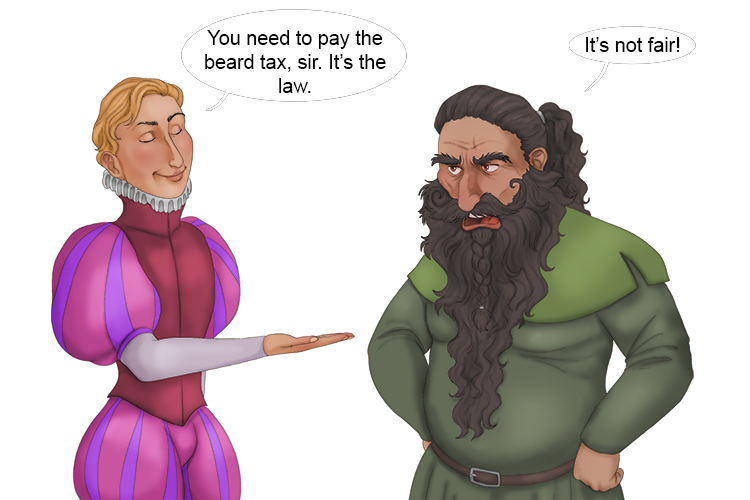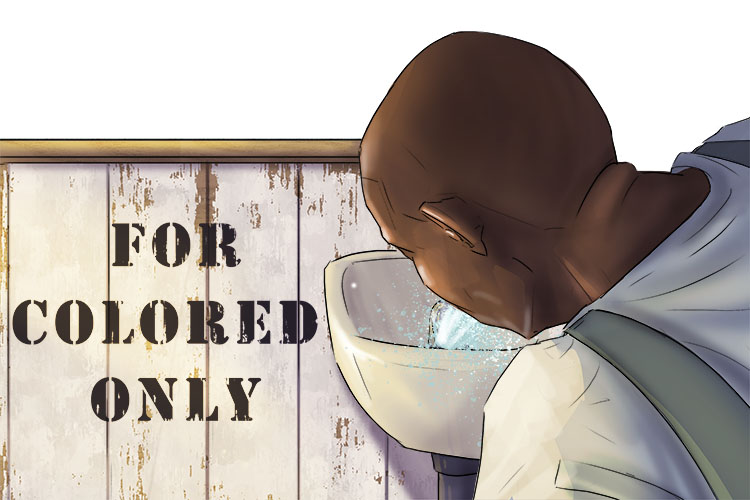Unjust Law – A legal requirement within a society that is believed to be unfair
Note: Is it a cause of crime if a person believes they cannot follow (or must act against) a law they believe is unjust?
To remember the meaning of the term Unjust Law, use the following mnemonic:
This is unfair and needs adjusting, this law (unjust law) needs to be changed.

Who is to say which laws are just, and which are unjust?
For instance, in the UK people who own or rent a house normally have to pay council tax by law. However, if they simply cannot afford to pay it, and cannot get benefits or an exemption, is it a just law? To them, it will seem unfair.
The problem is that many laws that seem unjust to some are designed to help society in general. We will lose many services and facilities if we all refuse to pay our taxes because we think they are unfair.
When certain governments introduce so-called "draconian" laws that interfere with people's liberties, some people will refuse to comply and perhaps organise protests.
Protests against unjust laws have sometimes resulted in historic victories – for instance, the ending of Apartheid in South Africa and the lifting of segregation laws in the United States.

In the Middle East, many have railed against Sharia laws that have made it unlawful for women to drive, or the Taliban law that prohibits girls from attending school. This shows that the reasoning behind some unjust laws can come from religion itself, and not just governments.
The stoning to death of women for alleged adultery also stems from laws that have arisen from religious principles.
While some religions support laws which seem unjust to the rest of the world, it is also true that many religions have played a part in overturning unjust legislation.
Generally, religion supports the observance of laws, but many religious people also take a stand against laws that they believe are wrong. From conscientious objectors refusing to take part in wars to Christian supporters of civil rights movements, there comes a point where people of conscience feel they must take a stand.




